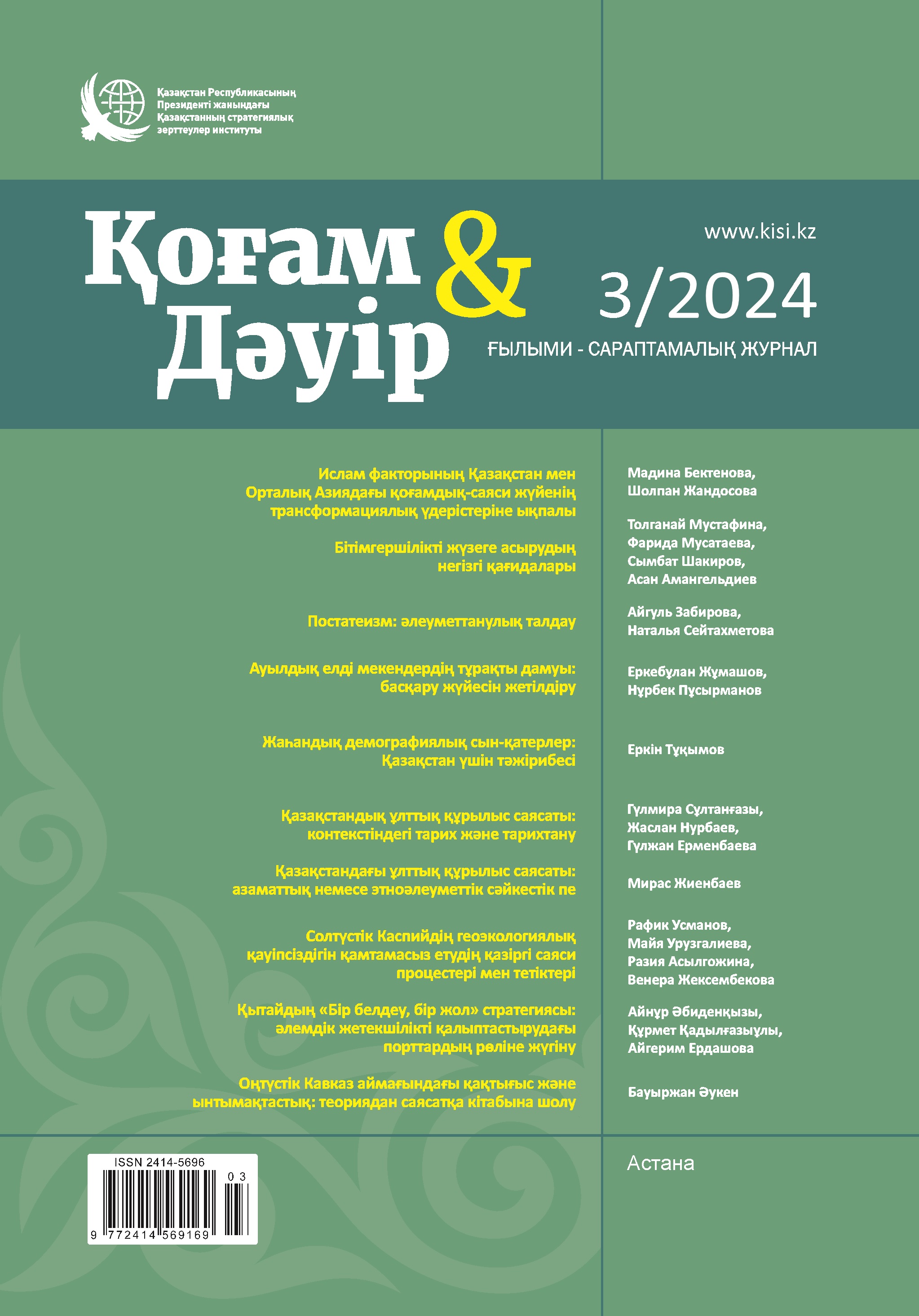Abstract
The article examines theoretical and conceptual approaches to the study of the influence of Islam and the Islamic factor in the discourse of transformational socio-political processes in Kazakhstan and the Central Asian region. Understanding and interpreting current paradigms and trends in the development of Islam and related sociocultural, socio-political processes facilitates the orientation of our country and society in the changing realities of the world order. The development of possible mechanisms for regulating modernization processes in our country in the field of state-confessional policy has great academic and practical significance for the domestic scientific community. The article also examines differences in the interpretation of Islam among different communities in the region, as well as the impact of global trends on religious practices and political activism. Overall, the article aims to highlight the complex dynamics between Islam and socio-political life in Kazakhstan and Central Asia, focusing on the key transformational processes and challenges facing regional societies.


